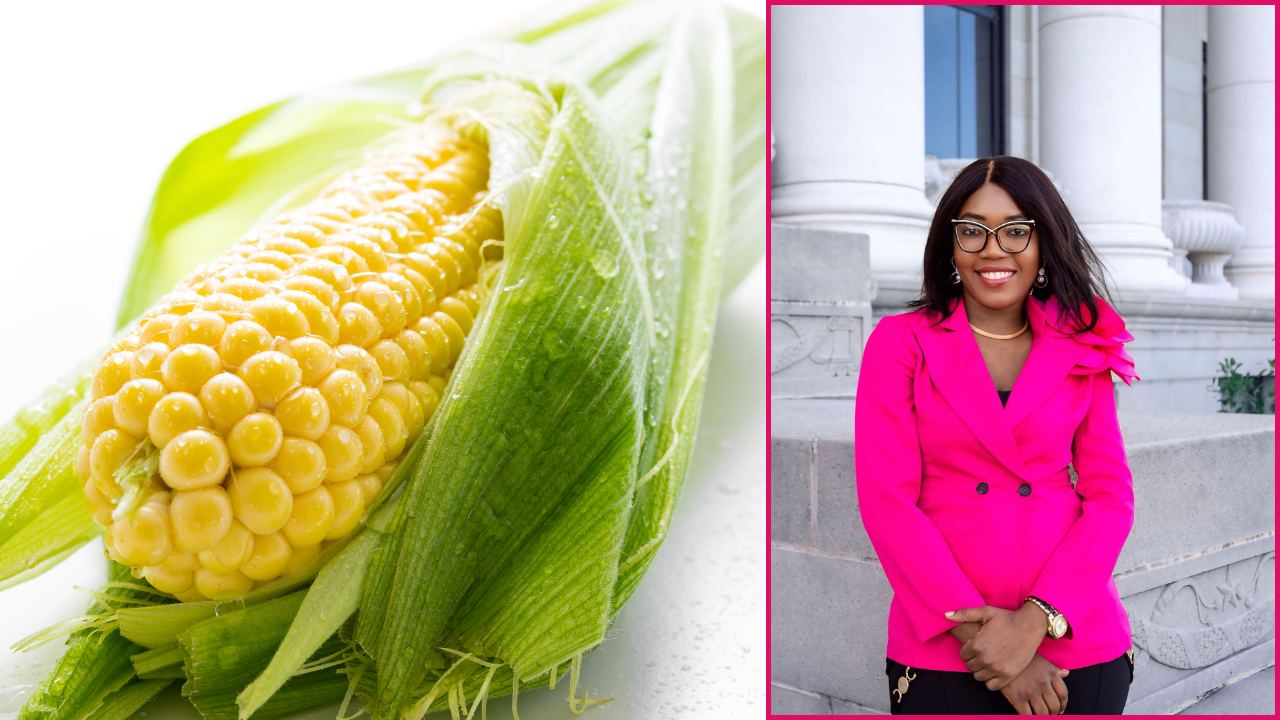Enhancing Maize Starch is Now Possible through Gene Editing!

Amaka Ifeduba PhD | Contributor on Agribusiness-related Topics
Are you an African diaspora entrepreneur passionate about unlocking the immense potential of African agriculture? Do you dream of creating sustainable job opportunities, addressing food insecurity, and making a profitable impact? Then you are part of an exciting and transformative movement. In this article, Dr. Amaka Ifeduba, our expert contributor on agribusiness, offers valuable insights into the intersection of agriculture and human development.
Learn with AClasses Media and improve yourself and your business skills.
With her vast expertise in research, scientific communication, and public speaking, Dr. Ifeduba is bridging critical gaps that will empower entrepreneurs like you to thrive in the agribusiness sector.
The African continent is brimming with untapped agricultural potential, and with the right approach, there are enormous opportunities to make a lasting difference. From increasing food security to creating jobs and boosting the economy, African diaspora agribusiness entrepreneurs are in a prime position to lead the charge.
Dr. Ifeduba’s unique coaching also helps professionals tap into global opportunities, including securing graduate school placements in the U.S., to further elevate their agribusiness ventures.
Later in this article, we will explore how this foundational knowledge and support can help you succeed as an African diaspora agribusiness entrepreneur, making meaningful contributions to both local and global food systems.
So, keep reading to discover how you can make an impact in the rapidly evolving world of agriculture. Dr. Ifeduba’s reflection starts here.
Enhancing Maize Starch
A recent study published in The Crop Journal reported that scientists used the CRISPR/Cas9 system to improve the quality of maize starch by targeting specific genes. The study showed that the amylose and resistant starch content of maize kernel can be improved by creating mutants.
Targeted changes were made to the starch-branching enzyme I (SBEI) and starch-branching enzyme IIb (SBEIIb) genes.
The frameshift mutation in SBEI led to plants with a 1.07% higher resistant starch content, lower kernel weight, and plant height while the SBEII2 led to a whopping 54% increase in amylose content and a 30% increase in resistant starch content.
Also, they noted that the kernel starch was significantly different in granule morphology, chain length distribution pattern, X-ray diffraction pattern, and thermal characteristics compared to the wild type.
The changes were even more pronounced when both SBEI and SBEIIb genes were jointly mutated. These mutations improved the resistant starch content, kernel weight, plant height, and overall starch properties. Additionally, several other genes involved in starch production were more active in these modified plants.
See also Cassava Farming: A Gateway to Profitable Agribusiness for the African Diaspora
This study lays the foundation to rapidly improve the starch properties of elite maize lines, marking a significant advancement in agricultural innovation.
By leveraging gene editing technologies, scientists are paving the way for enhanced crop resilience and better nutritional quality, ensuring sustainable maize production for the future.
Now, following Dr. Ifeduba’s relfection, let take it even further. Are you ready?
5 Business Opportunities Of Maize Starch To African Diaspora Entrepreneur
Maize starch offers a variety of business opportunities that can be leveraged by African diaspora entrepreneurs. Below are five key opportunities and how they can be capitalized on:
1. Starch-based Food Products
Maize starch is a versatile ingredient in food production. It is used to produce a variety of food products such as snack foods, baked goods, and sauces.
Entrepreneurs can explore the creation of maize-based food products that cater to both local and international markets. For instance, maize starch can be used to create gluten-free products, which are growing in popularity.
By tapping into the increasing global demand for healthy and dietary-specific products, African diaspora entrepreneurs can invest in creating food brands that highlight the nutritional benefits of maize starch, targeting consumers who prioritize gluten-free or high-fiber diets.
2. Industrial and Biodegradable Packaging
With the increasing global push for sustainability, there is a growing demand for biodegradable alternatives to plastic. Maize starch is a primary ingredient in bioplastics, which can be used for eco-friendly packaging.
As an entrepreneur, venturing into the production of biodegradable packaging materials is an opportunity to cater to businesses in food service, retail, and other industries that are looking for sustainable packaging options.
This aligns with the African Union’s Agenda 2063, which emphasizes sustainability and eco-friendly innovations.
By entering this market, African diaspora entrepreneurs can reduce environmental impact while contributing to sustainable development.
3. Pharmaceutical and Cosmetic Applications
Maize starch is widely used in the pharmaceutical and cosmetic industries for its binding, thickening, and stabilizing properties. In pharmaceuticals, it is commonly used as an excipient in tablets, powders, and syrups.
The cosmetic industry uses it in face powders, lotions, and shampoos. African diaspora entrepreneurs can tap into this market by producing and supplying maize starch to pharmaceutical companies and cosmetic manufacturers.
As African populations are increasingly focusing on health, wellness, and beauty products tailored to their unique needs, this presents an emerging business opportunity with high growth potential.
4. Animal Feed and Livestock Nutrition
Maize starch is a valuable ingredient in animal feed, especially for livestock such as poultry, cattle, and pigs. It is used to improve the energy content of animal feed, which is essential for efficient livestock farming.
African diaspora entrepreneurs can explore the business of manufacturing and supplying maize starch-based animal feed, meeting the needs of the growing agricultural sector in Africa.
This opportunity is especially significant given the increasing demand for meat and dairy products in Africa, as well as the rise of intensive farming practices.
By establishing a supply chain that supports local farmers with affordable and high-quality animal feed, entrepreneurs can make a significant contribution to food security and agricultural growth in Africa.
5. Biofuel Production
Maize starch can be fermented to produce ethanol, a key component in biofuel production. This is an emerging market in Africa, where the demand for renewable energy sources is increasing due to the need to reduce reliance on fossil fuels.
As an African diaspora entrepreneur, investing in biofuel production offers a chance to contribute to both energy security and environmental sustainability. Maize is a crop that is abundant in many parts of Africa, providing a local, renewable resource for biofuel production.
Entrepreneurs can capitalize on the growing interest in green energy solutions by establishing biofuel production facilities that support local energy needs while promoting sustainable agricultural practices.
In summary, maize starch presents diverse and profitable business opportunities for African diaspora entrepreneurs.
By leveraging this versatile and sustainable resource, entrepreneurs can tap into emerging markets such as food production, biodegradable packaging, pharmaceuticals, animal feed, and biofuels, contributing to both local economies and global sustainability efforts.
Conclusion on Enhancing Maize Starch through Gene Editing
In conclusion, the potential of maize starch as a versatile and sustainable resource offers numerous opportunities for African diaspora entrepreneurs to create impactful businesses.
Whether through food products, eco-friendly packaging, or renewable energy, these opportunities align with the growing demand for innovation and sustainability across industries.
By tapping into these markets, African entrepreneurs can not only drive economic growth and job creation in Africa but also contribute to addressing global challenges such as food insecurity and environmental sustainability. The future is bright for those ready to harness the power of maize starch and make a lasting impact.
Learn with AClasses Media and improve yourself and your business skills.





